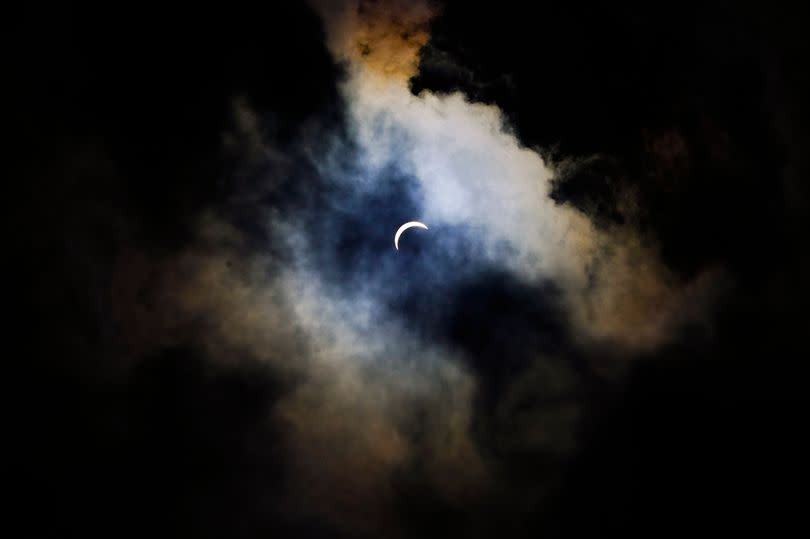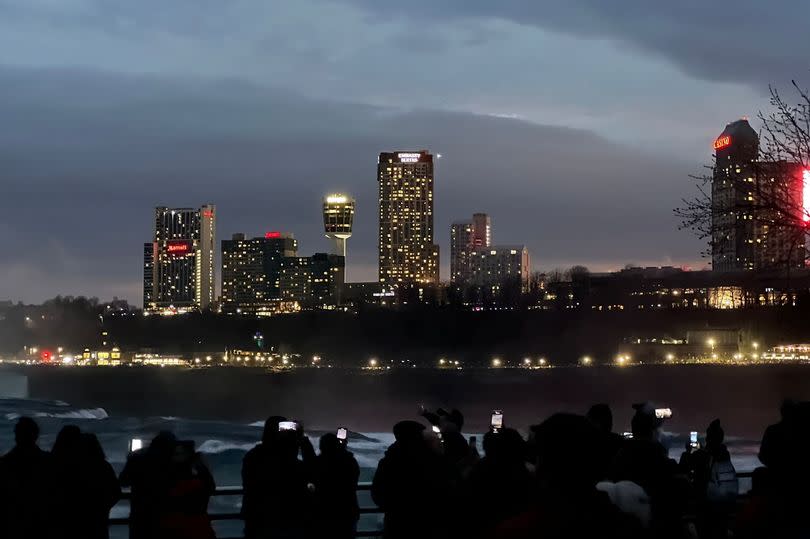Solar eclipse damp squib for Scots as rest of world treated to incredible display

The partial solar eclipse turned out to be a letdown for Scots as the rest of the world was treated to an incredible display.
Cloudy skies prevented spectators across Scotland from seeing a partial solar eclipse, while those in North America witnessed a total eclipse of the sun lasting up to four minutes and 29 seconds in some areas.
Millions of people flocked to states including Texas, Arkansas, Ohio and Vermont on April 8, where the path of the solar eclipse meant they could witness the moon entirely cover the sun’s disk, weather permitting.
But unfavourable weather conditions meant even partial eclipses, where a little bit of the sun is covered by the moon, which was potentially visible from locations across the UK, were shrouded by overcast skies.

Dr Robert Massey, deputy executive director at the Royal Astronomical Society, said: “I’m wondering whether or not anybody in the UK actually saw it.
“There seem to be people saying it’s cloudy in Cornwall, cloudy in west Wales – there’s an outside chance people might be seeing it from a youth hostel on the Isle of Harris, in the Western Isles.”
The Met Office said on Monday that a cloudy evening would prevent the partial eclipse from being seen in most of the UK, though viewing conditions were best in the far northwest of Scotland, including the Hebrides.
Simon Partridge, a forecaster at the Met Office, said: “The chances are most of England and Wales probably wouldn’t have seen it anyway.”
He added that outside of the northwest of Scotland, the eclipse would have been “very, very small and probably not actually noticeable” even if clouds had not obscured it.
Professor Don Pollacco, of the department of physics at the University of Warwick, saw the total eclipse in Texas and said British spectators had not missed much because there “wasn’t anything worth seeing in the UK”.
He said: “The total eclipse is just so unbelievable whereas the partial eclipses are really boring.
“The light takes on this really eerie quality, kind of a silveriness that’s really hard to explain and doesn’t come over on camera.
“I’m a scientist, and I’m saying it’s magical.”
The last total solar eclipse which could be seen from the UK was in 1999, and there will not be another until 2090.
Professor Pollacco said he would “absolutely recommend” people take the opportunity to travel to see total solar eclipses, such as one scheduled for parts of Europe and North America in 2026.
He said: “Spain will be the place to go because the weather in August is probably better than Iceland.
“I wouldn’t bother watching any partial eclipses – I think they’re a waste of time.”
Don't miss the latest news from around Scotland and beyond - Sign up to our daily newsletter here.

 Yahoo News
Yahoo News 
